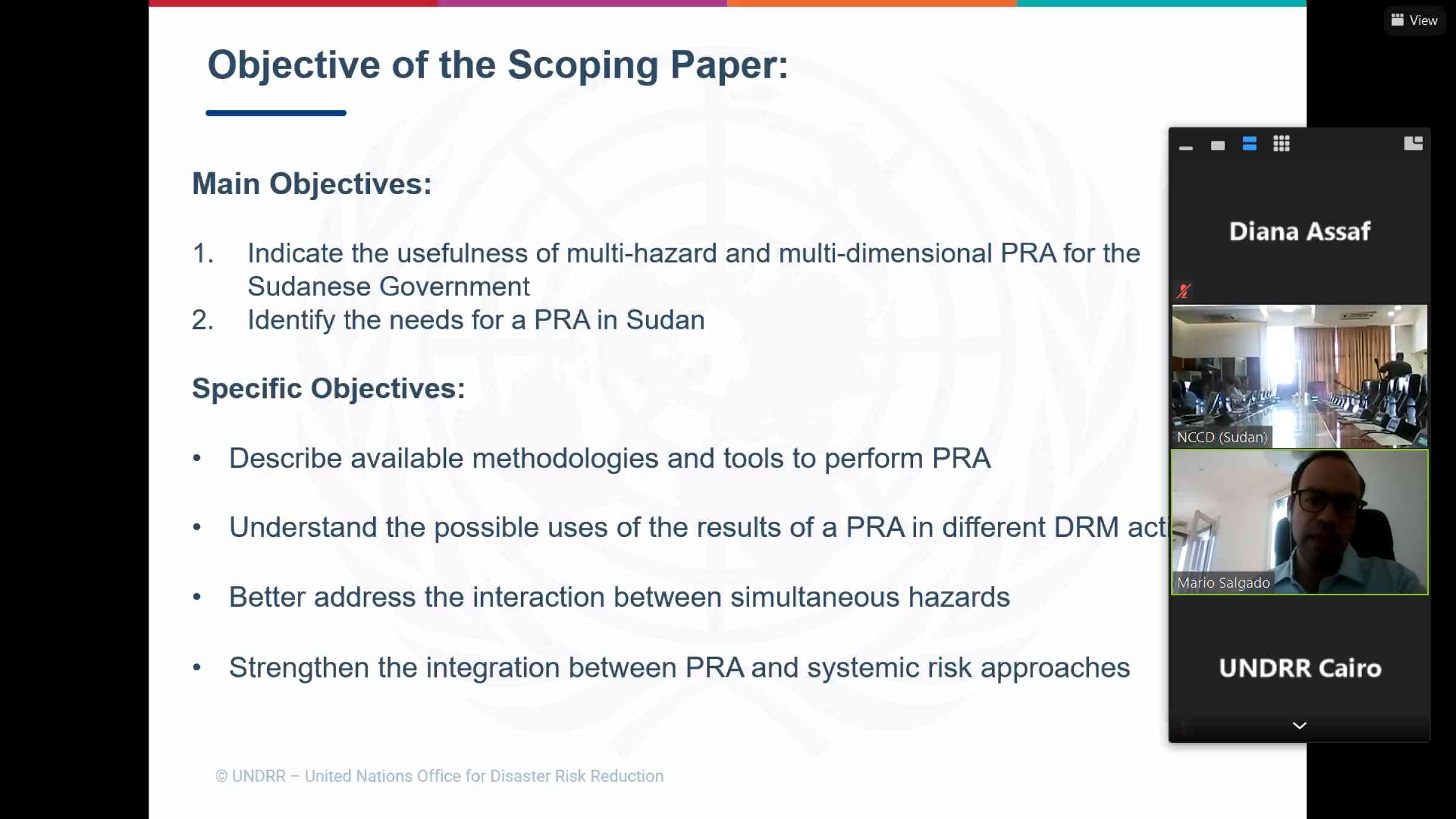UNDRR ROAS Launches the Results of the Scoping Paper on Multi-Hazard and Multi-Dimensional Probabilistic Risk Assessment in Sudan

Khartoum, 9 September 2021 – The United Nations Office for Disaster Risk Reduction, Regional Office for the Arab States organized a workshop with ministers and disaster risk managers, and practitioners in Sudan to present the content and recommendation of the Scoping Paper on Multi-Hazard and Multi-Dimensional Probabilistic Risk Assessment in Sudan.
The workshop aimed to gather feedback on the proposed plan to develop a multi-hazard and multi-dimensional probabilistic risk assessment at the national level and explore ways to involve local specialists, institutions, and academics in the full process of the probabilistic risk assessment.
This initiative comes to strengthen Sudan's capacity to systematically account for disaster losses, identify hazards, and develop risk assessments. UNDRR collaborated with the government to identify the problem, the need to perform risk assessments, and how can these results increase the overall disaster resilience.
The Scoping Paper proposes how a multi-hazard and multi-dimensional probabilistic risk assessment at the national level should be developed, what questions are expected to be answered by the model(s), what data are required, and what is the expected use of the results. The probabilistic risk assessment is intended to be developed at the national scale and the hazards considered have been prioritized by their characteristics and geographical extension, in terms of causing shocks and stresses at a national scale. Also, beyond the estimation of losses and impact, the interactions between livelihoods, employment, production systems, and infrastructure are to be assessed, by adopting a systemic overview of disaster risk and assess the performance of the country when subjected to different shocks and stresses.
The paper reviews previous hazard, exposure, vulnerability, and/or risk assessments developed in Sudan for one or more natural hazards, to identify the needs and existing gaps that should be completed by the future probabilistic risk assessment. Furthermore, UNDRR ROAS carried a consultative process with local specialists and individuals to confirm the needs and expects active participation of them during the development of the risk assessment.
Disaster risk has gained attention in recent years, with improvements in its understanding and its management. The scale of the impact of any disaster depends on the choices we make for our lives and our environment. The more we understand risk and vulnerability, the better equipped we will be to mitigate disasters when they strike and save more lives. Adopting a multi-hazard and holistic approach for better understanding disaster risk represents a step forward.